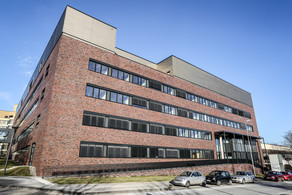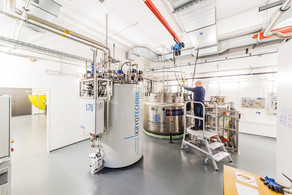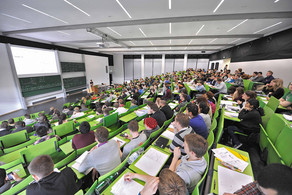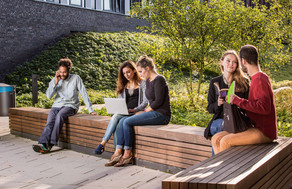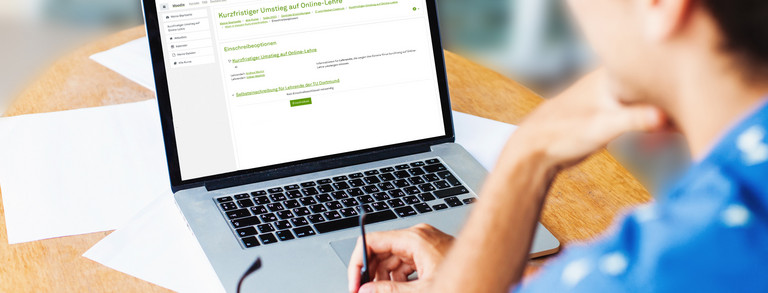Universities in Dortmund, Wuppertal and Aachen develop virtual "zeroth" semester
- News

Young people entering higher education often bring unequal levels of knowledge with them - for example, due to different educational biographies and qualification paths for university entrance or due to a break between school and studies. However, secure school competences are an essential prerequisite for successful studies. This is where the beVinuS.NRW project comes in: The three participating universities will jointly develop a programme of digitally supported, study-accompanying self-learning phases that will enable students to close knowledge gaps alongside their studies and to refresh the competences required for the respective degree programme - and to do so precisely when the school knowledge is needed in their studies.
Universities already offer a wide range of support services for first-year students, including preliminary courses, for example. However, the content is covered in a short period of time before the start of the lecture period and is not tailored to individual needs. In addition, participation is usually time- and location-bound. beVinuS.NRW addresses these disadvantages: Through digital self-learning, students can use the courses flexibly in terms of time and location and repeat precisely the content in which they still have gaps. In cooperation with the Ministry of Culture and Science of the State of North Rhine-Westphalia, the participating universities are striving to develop a reform model so that participation in such supplementary courses can also be funded by the BaföG. The courses are to be credited to the students as additional study achievements and, if they are of sufficient scope, increase the eligible standard period of study. The programme to be developed is intended as a supplement to support formats through which students are already personally addressed and supported, such as mentoring, small groups or workshop offers; it is not intended to replace these.
"Important contribution to more educational equality".
The project is directly attached to the university management at the participating universities. The Vice-Rector for Studies at TU Dortmund University, Prof. Wiebke Möhring, is pleased about the project funding from the state: "We have been observing for some time that our students sometimes have very different prior knowledge from school. With beVinuS.NRW, we are therefore also making an important contribution to more educational equity: because successful studies should not depend on the educational path and the time at which the students came to university."
The three universities will develop subject- and media-didactic concepts by September 2025 on how school prerequisites can be diagnosed and refreshed and expanded according to need. On this basis, students will systematically receive testing opportunities and offers for digital self-study in all courses of their degree programme in which prior school knowledge is required. Initially, the departments of mathematics, physics, mechanical engineering and electrical engineering as well as the Institute for School Development Research are involved at the TU Dortmund. In addition, TU Dortmund University is supporting the project from the perspective of learning and motivation science in order to research how the structure and content of beVinuS.NRW must be set up in order to provide participants with a concrete advantage.
After the project ends, the documented reference process will be made available to other higher education institutions in NRW. These can then draw on the previous experience of the University of Wuppertal, RWTH Aachen University and TU Dortmund University when introducing their own "accompanying virtual zero semester".
Contact for queries:




